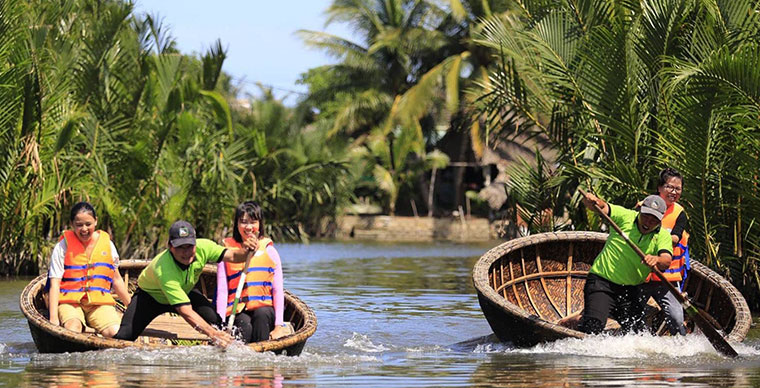
Cam Thanh village, a green oasis of Hoi An
- on Sep 12, 2019 By: Ngoc Nguyen
One visit which has to be made in the surroundings of Hoi An which justifies prolonging your stay in this delightful city is a visit to Cam Thanh village. People come from all over the world to appreciate the remarkable cultural and historical heritages of this ancient merchant port from the 15th to the 19th century although some guests forget to wander into the countryside of Hoi An, a place which holds many treasures.
Known as a village of craftsmen with ancestral know-how, Tra Que vegetable village and its nonchalant river Thu Bon has exquisite beaches and archaeological sites like “My Son” which is classified as a Unesco heritage site. Although Tra Que may be the most popular, let us show you the quieter and less travelled to Cam Thanh village, a unique place of beauty where nature rules!
Agrarian landscapes
Located 3km from Hoi An ancient town, Cam Thanh is a village full of coconut trees and mangrove palms wedged between the Thu Bon River, the beach and the Cua Dai estuary. Its exceptional location is reason enough for you to come visit this charming fishing village.
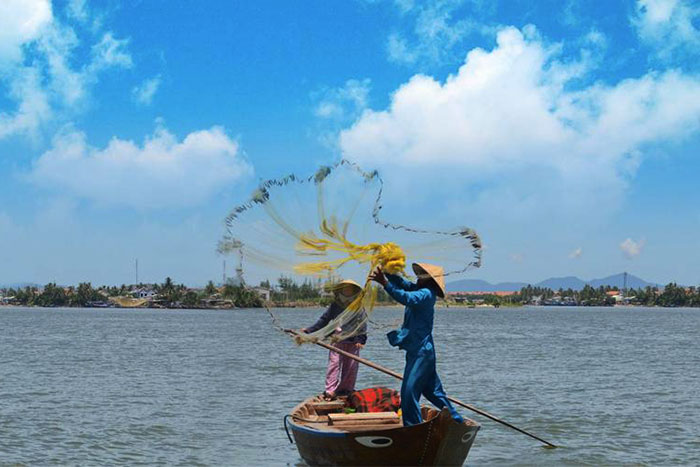
Cam Thanh village is often called "the village of coconut trees" because of its large amount of coconut trees and mangrove palms which emerge from the water. The landscape is full of exoticism its beauty reminds us of the languid landscapes of the Mekong Delta in southern Vietnam. Many of the coconut palms were imported from the Mekong Delta and replanted here. The surface today of coconut palms and submerged water palms is 7 hectares. This forest is a protected natural area recognized by the WWF and has become a preferred habitat for many marine species including crabs and clams. The broad and long leaves of the coconut trees and mangrove palms are also used to produce rich and varied handicrafts. They can be prepared to manufacture roofs for huts or they can be braided to make mats, bags or hats.

The locals also exploit the roots of the coconut trees which have medicinal properties capable of treating gall bladder infections and urinary tract infections as well as kidney disease. This village has vegetation so dense that it served as a hiding place for Viet Cong fighters during the Vietnam War just like Ben Tre in the Mekong Delta which was an important island of resistance.
Discover Cam Thanh's countryside
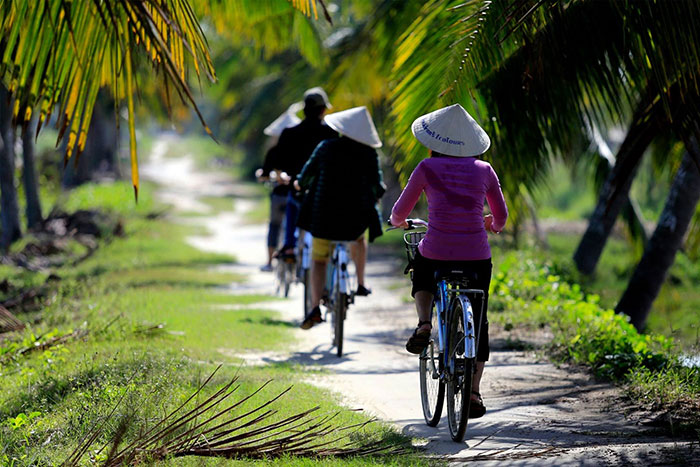
From Hoi An city centre you can go for a nice bike ride through the beautiful Hoi An countryside and come to Cam Thanh village. You can observe the village life and see from the banks the beautiful landscapes formed by coconut trees and mangrove palms. Then you can relax on the nearby Cua Dai beach or cycle a little bit further to the beautiful Ha My Beach which is 8 kilometres away. If you fancy a seafood lunch with plenty of sunshine at the end of the day and want to admire the warm colours of the setting sun then this is the place for you.
The best way to discover this exceptional natural area is to go sailing on the water in the same way as the locals, by a bamboo basket. It is a very unique boat, typical of Hoi An and also of much of the Vietnamese coast. The boat-basket or “thuyen thung” in Vietnamese is a very unusual type of boat with a circular shape made of braided bamboo. It is highly resistant to damage from rocks and they are used by the locals for inshore fishing especially for laying and raising nets. You can try to manoeuver this boat which requires great agility and a special hand that consists of sculling. The locals are there to show you how to steer the boat and you will also discover their different fishing techniques. On the way you can drink a coconut to cool off and then enjoy a typical homestay lunch with dishes from coconut forests and mangrove palms. You will notice that their home is made up of various elements coming from their natural environment.
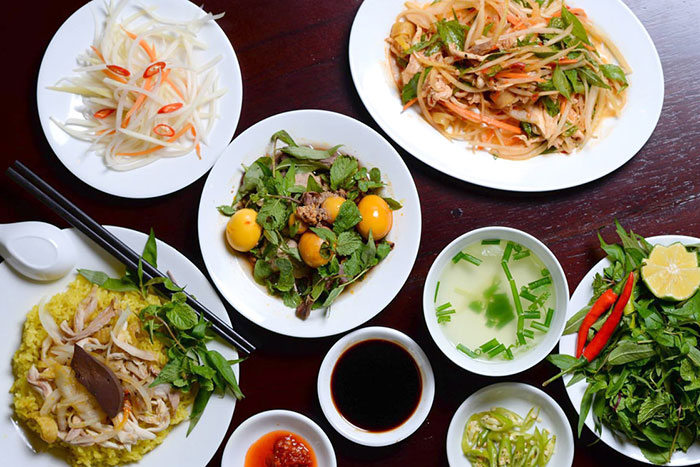
In Cam Thanh village you will observe villagers making traditional handicrafts from the coconut trees and see the inhabitants who make rice noodles which are the main ingredient of the traditional dish of Cao Lau in Hoi An. This speciality of Hoi An has existed since the 17th century and has the culinary influences of different communities which formerly lived in Hoi An (French, Chinese, Japanese...). The soup is cooked with rice noodles, thin slices of pork, aromatic herbs then all submerged into a delicious broth.
When to visit Cam Thanh and Hoi An?
To make the most of the beauties of Cam Thanh village we advise you to explore the area between February and May when the temperatures are the most lenient. From June to September the temperatures are high and from late September to November there can be a lot of rain.
Related articles:
>> Hoi An: A timeless town in the heart of Central Vietnam
>> Cooking class in Hoi An: an indispensable activity when traveling to Vietnam
>> Hoi An night markets: a must-see in the old city
>> Chaozhou Hall: A place to visit in Hoi An
>> Lantern making in Hoi An: a preserved tradition in this charming city
 Español
Español Français
Français






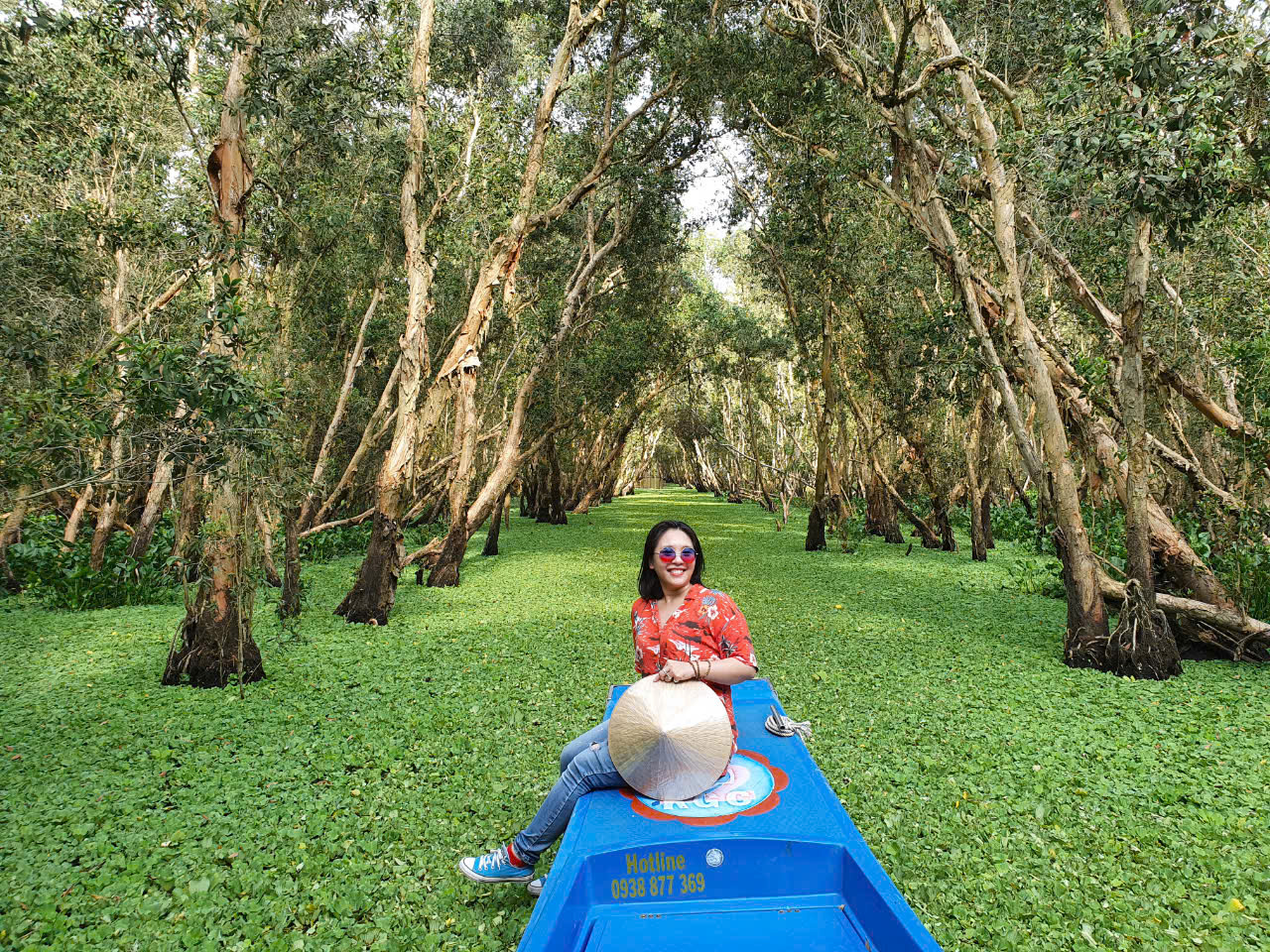
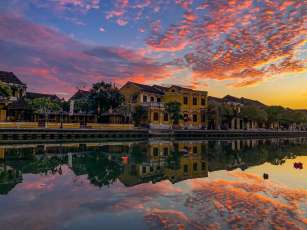
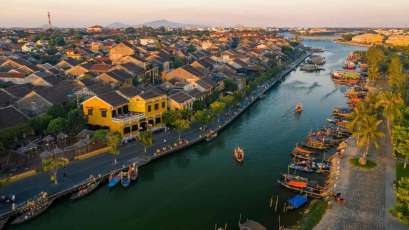
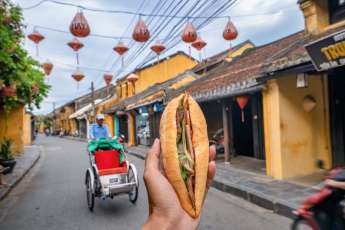
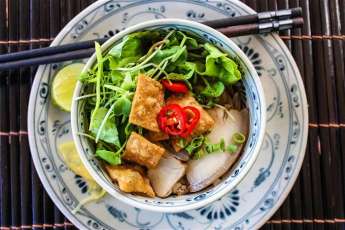
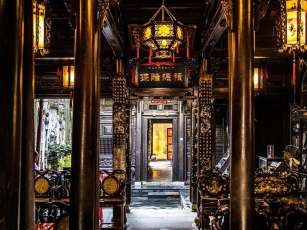
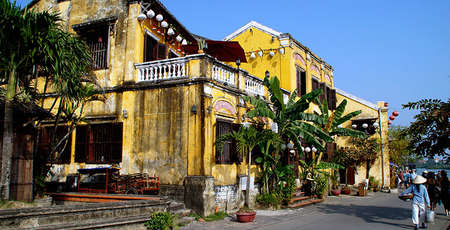







Timothy O Tool
on Feb 23, 2026Timothy William Groh
on Feb 23, 2026TwelmSC
on Feb 20, 2026Morgane Ter Cock
on Dec 18, 2025HerbertPhomaMS
on Oct 19, 2025